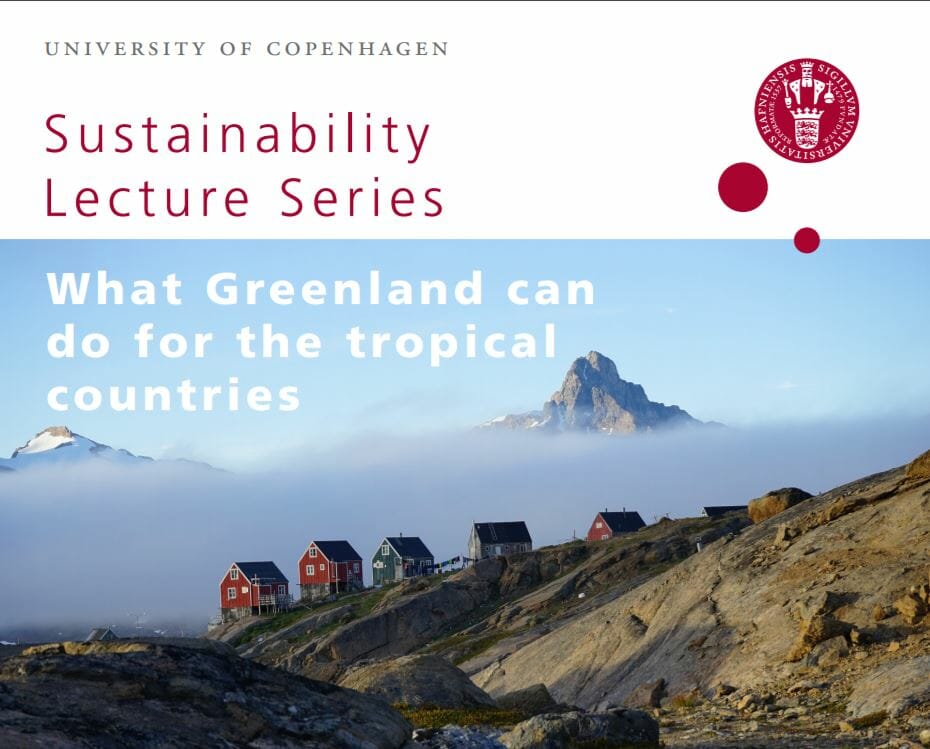Universitetsavisen
Nørregade 10
1165 København K
Tlf: 35 32 28 98 (mon-thurs)
E-mail: uni-avis@adm.ku.dk
Talk
Talk — How do we feed a growing world population? Can we actively capture CO2 from the atmosphere and store it in the ground? Can the vast Greenlandic Ice Sheet promote growth of crops in the tropics?
Date & Time:
Place:
AUD 1, H.C. Ørsted Instituttet, Universitetsparken 5, 2100 København Ø
Hosted by:
Sustainability Science Centre
Cost:
Free
Sustainability Science Centre is proud to present a sustainability lecture on 12 April 2018, with Minik Rosing, Professor of Geology at the Natural History Museum of Denmark, University of Copenhagen.
How do we feed a growing world population? Can we actively capture CO2 from the atmosphere and store it in the ground? Can the vast Greenlandic Ice Sheet promote growth of crops in the tropics? Would it be environmentally responsible – or even a remotely good idea – to transport mud from one end of the world to the other? Can Greenland create economic growth by “doing good” on the global stage? A cross-disciplinary research project at the University of Copenhagen headed by professor of Geology, Minik Rosing, is currently focusing on the possible use of a special type of Greenlandic mud to answer these questions.
Minik Rosing is Professor of Geology at the Natural History Museum of Denmark, University of Copenhagen. His research interests include the formation and stabilization of Earth’s continents and the emergence and early evolution of Life. He has found traces of the very earliest life in Greenland, where he was born. He has been principal investigator of more than 30 field expeditions to Greenland, mapping and gaining knowledge about the Greenlandic geology and natural resources in Greenland. He is currently heading a research group on Geobiology at the Natural History Museum of Denmark and he also head of the cross-disciplinary research initiative Greenland Perspective which aims to activate research about Greenland into society and use research as a base to make Greenland relevant to the outside world and to create the basis for a more diversified industry in Greenland.
Katherine Richardson, Professor and Leader of Sustainability Science Centre, will moderate the talk.
